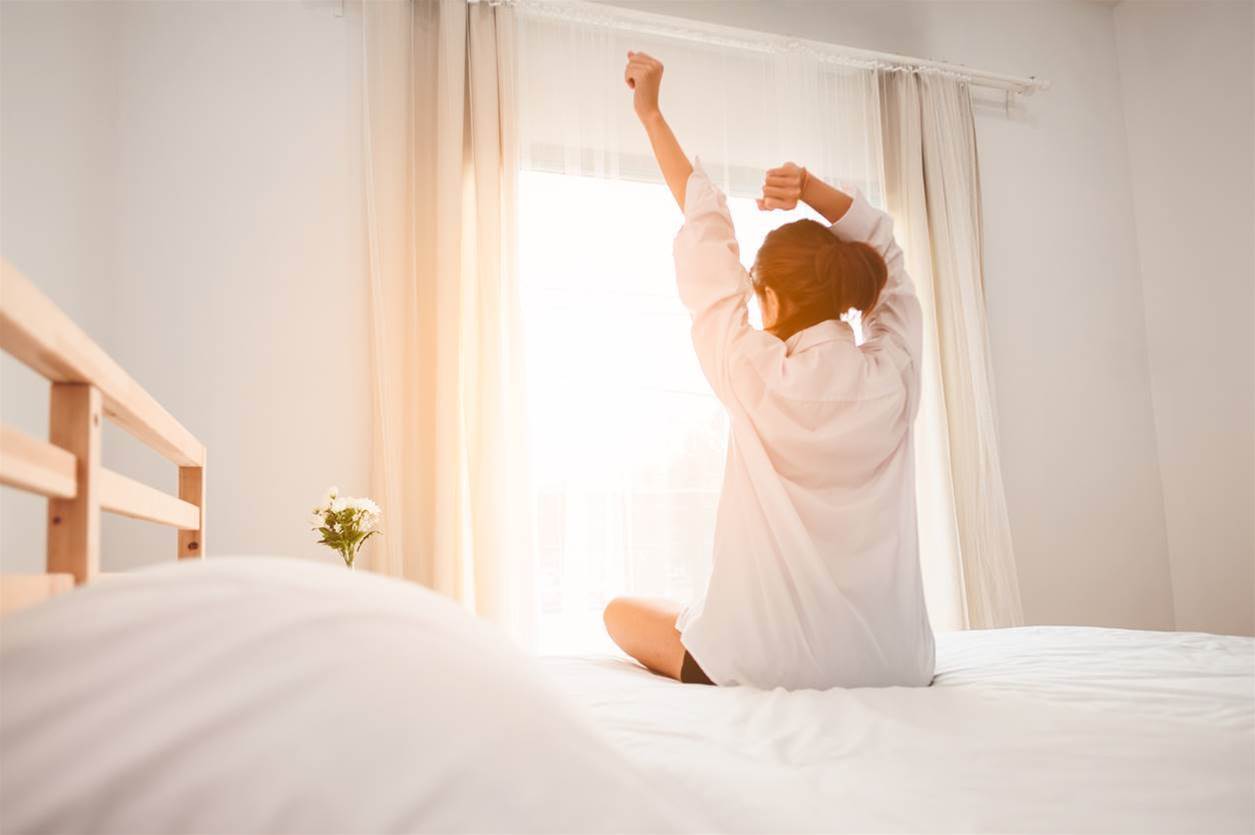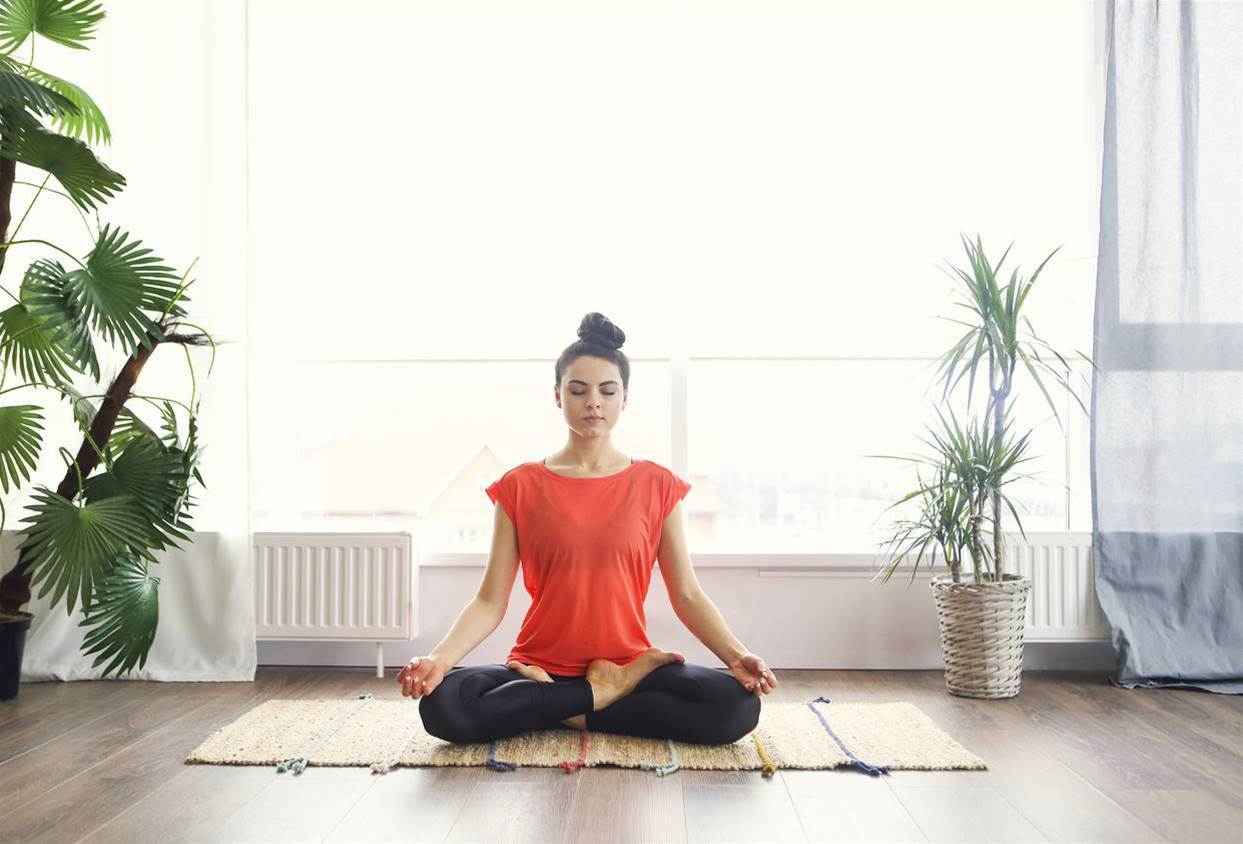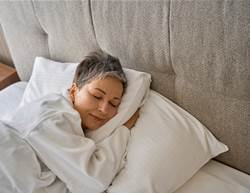A lot of us think about sleep approximately twice a day: at night when we’re tired and need to go to bed, and in the morning when we’re still tired and want to stay there. A lack of sleep affects our whole day. Poor sleepers miss out on immune and emotional regulation as well as tissue restoration and repair, says sleep-research psychologist Jessica Payne.
Stress may keep you awake, but insomnia can impair your ability to regulate stress the next day, creating a “sleep-stress snowball,” adds Payne. Stress increases levels of neurotransmitters and hormones such as cortisol and norepinephrine, keeping you in a hypervigilant state, always watchful for tigers (or office enemies). “The more you’re stressed, the poorer your sleep is and the worse your stress is,” Payne says.
Given sleep’s ability to wreak havoc on our waking hours, it only makes sense that our days might be causing us trouble at night. Think of your day like a fitness class, says sleep researcher Dr W. Christopher Winter. Your decision-making brain is like a good instructor who leads you through the class, giving notice of what’s coming up next or how many burpees you’ll be doing. Without that sort of guidance, your body holds back, he says, trying to conserve to prepare for the unknown.
What it all boils down to: A healthy night’s sleep relies on healthy daytime activities to create your body’s “biological clock,” or circadian rhythm. “The interplay of sleep and rest, when it’s on a schedule, helps signal your brain as to where it is within a 24-hour circadian rhythm,” Dr Winter says. Certain activities send the right signals and others can be harmful, says neurologist Dr Donn Dexter.
Here’s your 24-hour guide to which is which so you can sleep better, starting tonight.
MORNING
Quit hitting snooze.
Our greatest sleep mistakes happen in the morning, Dr Winter says. After a bad night, it’s tempting to give ourselves a pity pass to sleep in or take a sick day. On the other hand, a regimented response at the start of the day helps set your brain’s sleep-wake clock. The exception: If you wake up too early, don’t try to force a return to sleep—it’s smarter to go ahead and get up. That reduces the chance of developing a chronic case of insomnia, according to US research.
Eat breakfast. Yes, even if you aren't super hungry.
Banking kilojoules for dinner leads to overeating in the evening, then a night of fitful sleep as you try to digest that appetizer, dinner, dessert, and drink. In the morning, be sure some protein—such as eggs, yoghurt, meat, or milk—is on your plate. “In general, protein tends to facilitate the production of dopamine, a wakefulness neurotransmitter,” Dr Winter says.
Step outside early.
Exposure to morning daylight, preferably combined with exercise like a walk with the dog or to the bus stop, supports internal clock regulation, as the sun suppresses melatonin. Even on a cloudy day, a 10- to 30-minute outdoor walk provides more light than being indoors with all the lights on. If you can do a heart-pumping workout, even better: That’ll increase the serotonin that enhances mood and wakefulness and informs your internal clock, Dr Winter says.

AFTERNOON
Catch 10 minutes of downtime.
Our temperature naturally drops around lunch, aligned with circadian rhythms, causing sleepiness. A short catnap during your lunch break at the same time each day can reboot energy levels, but it isn’t necessary to fall asleep. “Resting isn’t a failed nap,” Dr Winter says. The goal is to practice relaxation techniques that will be useful later at night. Allow your mind to wander and get drowsy for about 10 minutes, then get back to what you were doing, refreshed.
Don’t chug coffee.
Our bodies produce adenosine, which promotes sleepiness, says sleep expert Dr Reeba Mathew. As a stimulant, caffeine blocks adenosine and inhibits your brain’s natural increase in sleepiness as you move toward nighttime. Herbal tea or water is better in the afternoon. Plus, if you drink water throughout the day, you’ll need less in the evening, helping you avoid 2 a.m. bathroom trips.
Work out before dark.
Exercising raises body temperature and levels of epinephrine and adrenaline, known as sleep fighters. Exercising in the late afternoon or early evening gives time for heat and hormones to quiet down. “A falling body temperature almost acts like a signal that brings on sleep,” Dr Mathew says.
Do a short meditation.
Decreasing daytime anxiety and worry can help you doze more deeply at night. Find five to 10 minutes to use the “body scan” meditation technique, observing your body’s sensations, moving slowly from toes to the scalp (or the reverse). Melt away stress either on your own or using a guided meditation in an app or on YouTube.
Don't try all of these at once, as big lifestyle changes can feel overwhelming. Try changing a few actions at a time instead. “A lot of people have messy sleep habits,” says Dr Mathew—so you’re in good company, and there’s no need to remake your dreamworld overnight.

EVENING
Turn off the overhead lights.
Exposure to bright blue light can reduce melatonin levels by up to 50%, says sleep medicine specialist Satchidananda Panda. After 6 p.m. or so, turn to table lamps and floor lamps with warm- or orange-hued lightbulbs. Electronic devices should be set tonight mode to warm the screen colour.
Create a ritual.
Any kind of electronic stimulus is problematic. You’ll experience subtle increases in blood pressure, heart rate, sweating, and pupil dilation. Instead, take at least 20 minutes to dial it down. Try gentle stretching, meditating, or taking a bath. Think of it as a “bookmark” at day’s end, Payne says, telling the body and brain it’s OK to sleep.
Stop eating at least two hours before bed.
And keep dinner on the lighter side. Your body’s digestive and waste functions need rest and downtime and to learn when “the kitchen is closed,” Panda says, to prevent midnight snacking.
Write down what's bugging you.
Payne says that without offloading the day’s events, your brain continues to process stressful situations throughout the night. Improve compartmentalisation by writing down problems and sealing them in an envelope — save solutions for the morning. And if you’re lying in bed stressing about sleep itself? Tell yourself that rest as such is important, even if you’re not in dreamland yet — or get up and do something quiet for 15 minutes. “Some people treat the bed like a bus stop,” Dr Winter says, and obsess over missing the sleep bus. Adjust your expectations and start again tomorrow.

How to Optimise Your Bedroom
- Temperature: Set your thermostat to between 15°C and 20°C.
- Sound: Your bedroom should be at least as quiet as a library.
- Bedding: Most individuals prefer a medium-firm mattress, and bedding should allow you to sleep comfortably without sweating.
- Darkness: The room should be so dark that you are unable to see your hand in front of your face. Can’t get to peak opacity? An eye mask should do the trick.
- Clock position: Face the clock away from you. Clock-watching makes us anxious and increases stress hormones, Dr Mathew says.
.jpg&h=630&w=1120&c=1&s=1)









